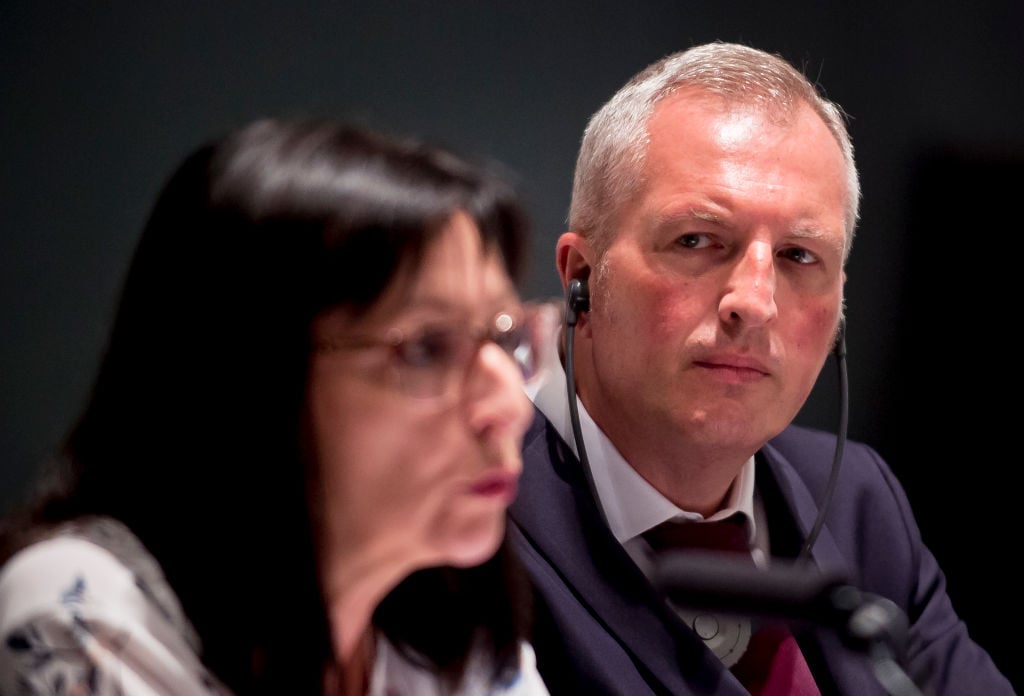Crime
The Employee Who Allegedly Stole Artifacts From the British Museum Has Been Identified as a Senior Curator of Greek and Roman Art
Peter John Higgs is suspected of pocketing the objects and selling them on eBay over the course of years.

Peter John Higgs is suspected of pocketing the objects and selling them on eBay over the course of years.

Taylor Dafoe

The British Museum employee fired for allegedly taking valuable items from the institution’s collection has been identified as senior curator Peter John Higgs, according to a new report from the Telegraph.
A curator of Greek and Roman art, Higgs had worked at the museum for 30 years before being dismissed earlier this year. His firing came after the museum discovered multiple objects, including pieces of gold jewelry and gems of semi-precious stones and glass dating from the 15th century B.C.E. to the 19th century C.E., missing from its storerooms.
Higgs is suspected of having stolen the objects over a period of years, often listing them for sale on eBay. Many are thought to have sold.
An unnamed antiquities expert cited by the Telegraph said that he started spotting semi-precious gems and glass items listed for sale on the e-commerce site in 2016 or earlier. He recognized the pieces from the Townley collection of Graeco-Roman artifacts given to the British Museum in the early 19th century.
The eBay seller’s name was “sultan1966”—the same handle Higgs used on Twitter at the time. When contacted by the expert, the seller denied any connection to Higgs. The antiquities expert said he informed the British Museum of the eBay listings in June of 2020.
Higgs has reportedly denied the allegations.
🔴 EXCLUSIVE: The man accused of stealing from the British Museum is a senior curator who has worked there for 30 years, The Telegraph can revealhttps://t.co/YmOr3TVfH0
— The Telegraph (@Telegraph) August 17, 2023
In a statement shared earlier this week, the museum said it planned to take “legal action” against the then-unidentified employee believed to be responsible for removing the wares. The situation is also under investigation by the Economic Crime Command of the Metropolitan Police. No arrests have been made.
“We called in the police, imposed emergency measures to increase security, set up an independent review into what happened and lessons to learn, and used all the disciplinary powers available to us to deal with the individual we believe to be responsible,” George Osborne, chair of the British Museum, said in the statement.
“Our priority is now threefold,” he continued. “First, to recover the stolen items; second, to find out what, if anything, could have been done to stop this; and third, to do whatever it takes, with investment in security and collection records, to make sure this doesn’t happen again.”
A spokesperson for the museum declined to comment further, citing the “fact that this is an ongoing police investigation.”
Perhaps the Parthenon Marbles are not safe in the UK after all. They should be moved to a museum in Athens where they can be well cared for…
Stolen British Museum works were likely 'destroyed or sent abroad' https://t.co/njDsC4TWVL via @MailOnline— Art Recovery International (@artrecovery) August 17, 2023
Higgs, 56, began working at the British Museum in 1993. He was the lead organizer of the institution’s 2021 exhibition “Ancient Greeks: athletes, warriors and heroes,” which is now on tour.
“I don’t think any of this has been very fair,” Higgs’s 21-year-old son, Greg, told the Telegraph. “His name has been completely dragged through the mud and demonized.”
The son said his father had been fired on July 5. “I think he had been under investigation for a while, but he didn’t tell any of us until the day it happened,” he explained.
The theft, and the rumors surrounding it, has left some experts questioning the British Museum’s leadership.
“To be honest, it’s pretty shocking,” Christopher Marinello, CEO of the Art Recovery International law firm, told the Guardian. “We get reports of museum thefts every day from around the world. But this is the British Museum, one of the most important and well-funded museums in the world.” Marinello said the institution “should have got the police involved right away.”
The news of the missing objects comes just weeks after the museum’s director of eight years, Hartwig Fischer, abruptly announced that he will step down from his role next year. Today, the Telegraph reported that staff at the institution believe his departure is related to the thefts.
On X (the platform formerly known as Twitter), Marinello’s firm used the incident to weigh in on another issue facing the embattled museum. “Perhaps the Parthenon Marbles are not safe in the U.K. after all,” Art Recovery International wrote. “They should be moved to a museum in Athens where they can be well cared for…”